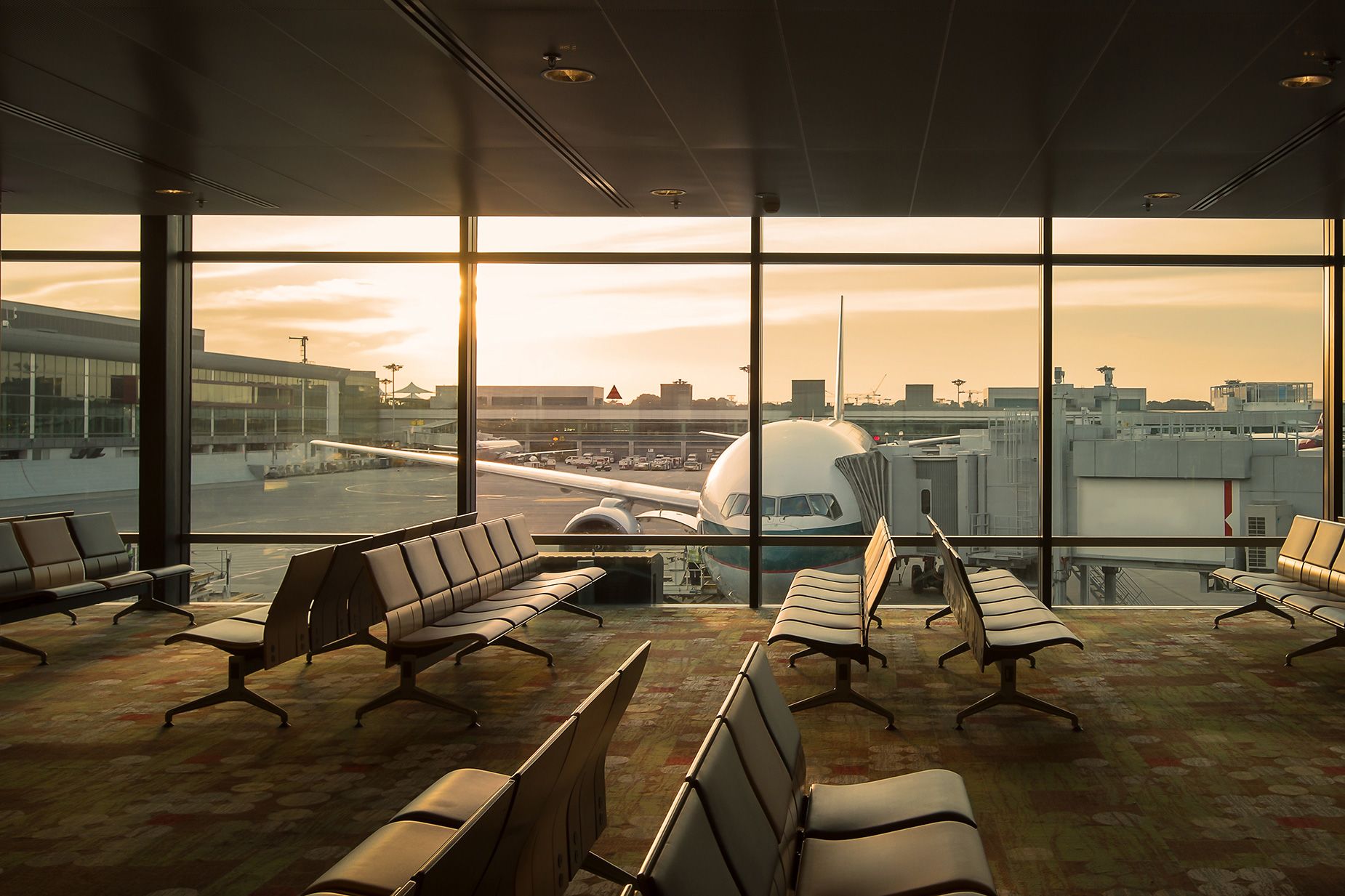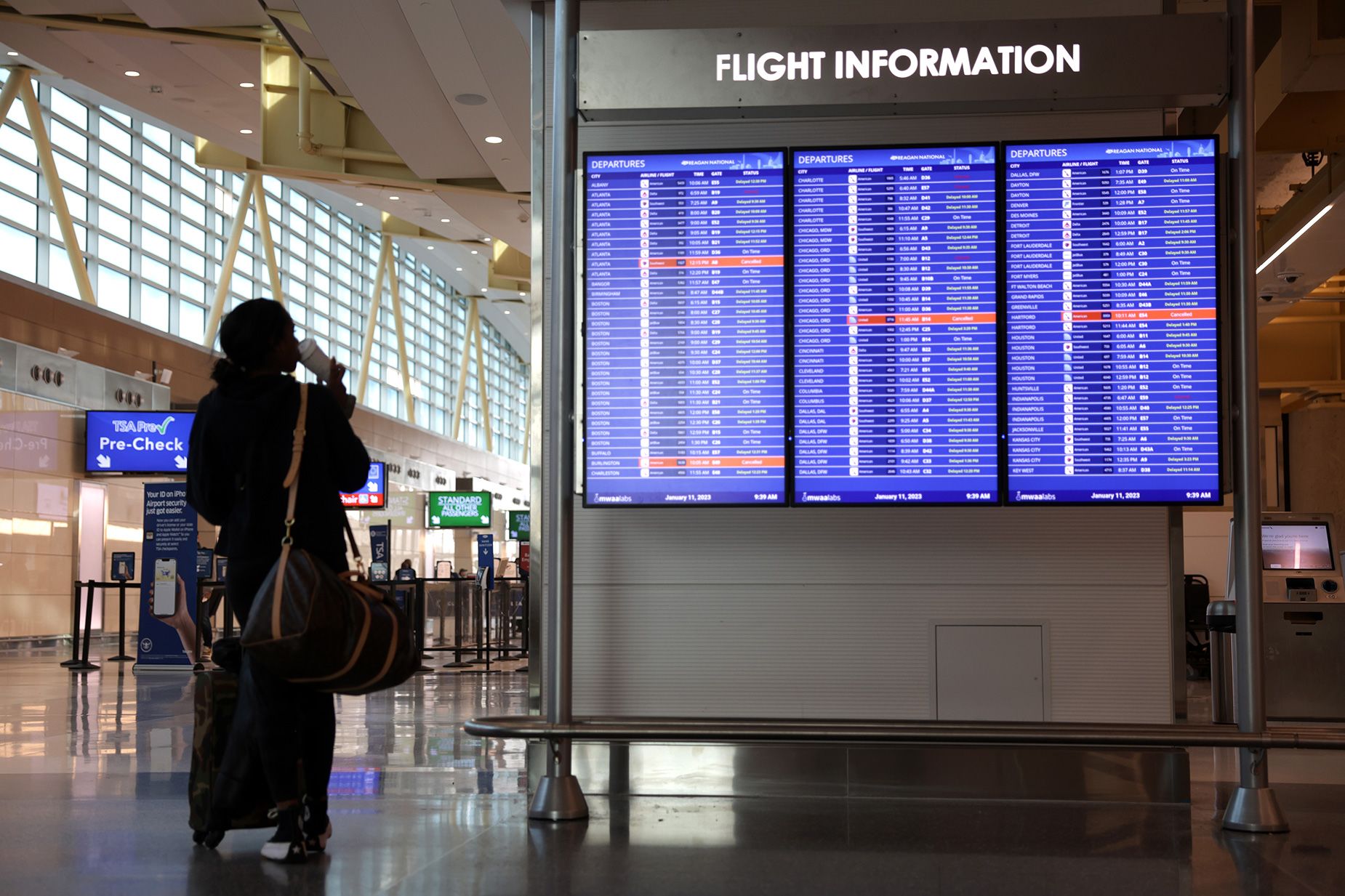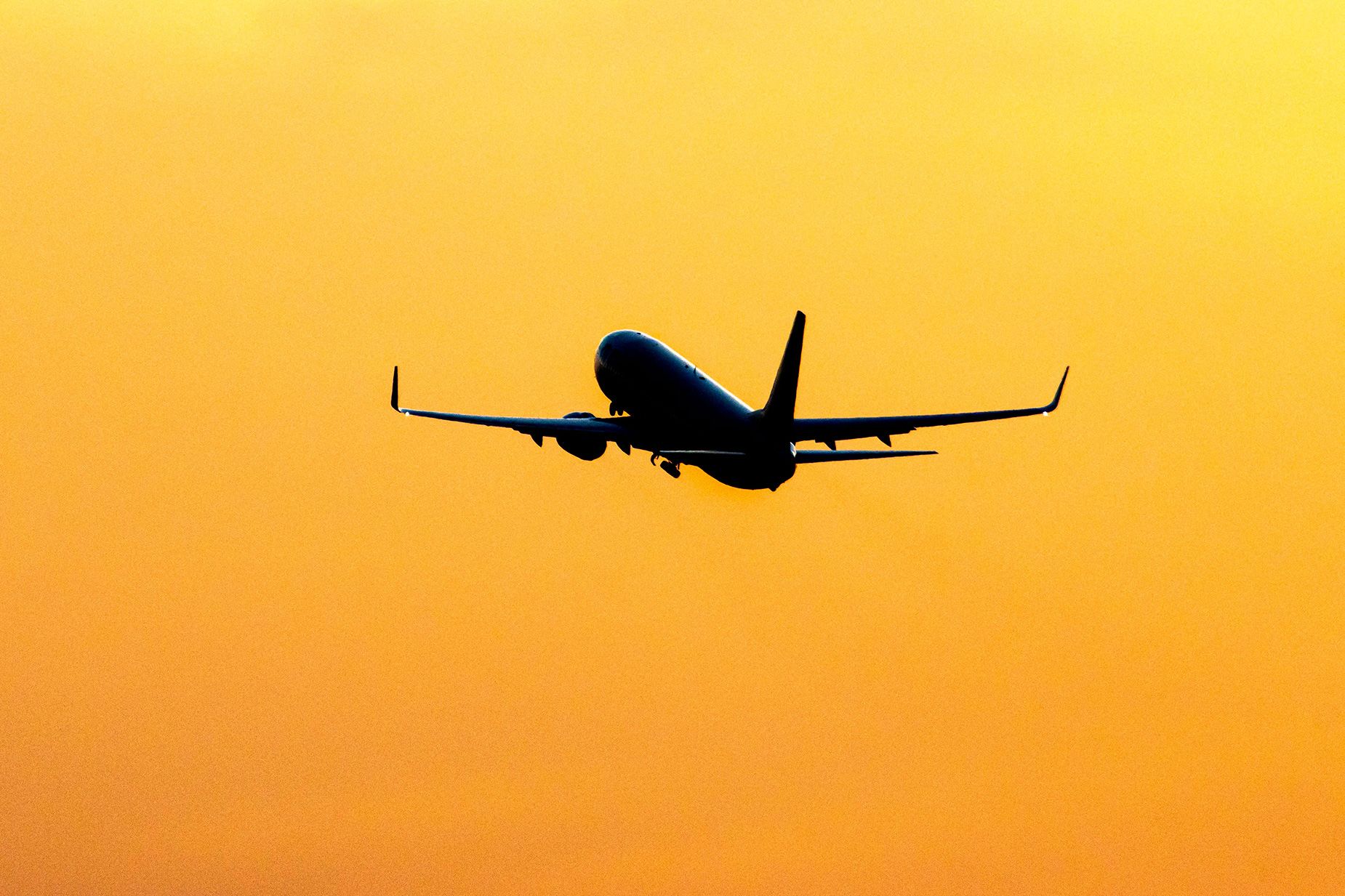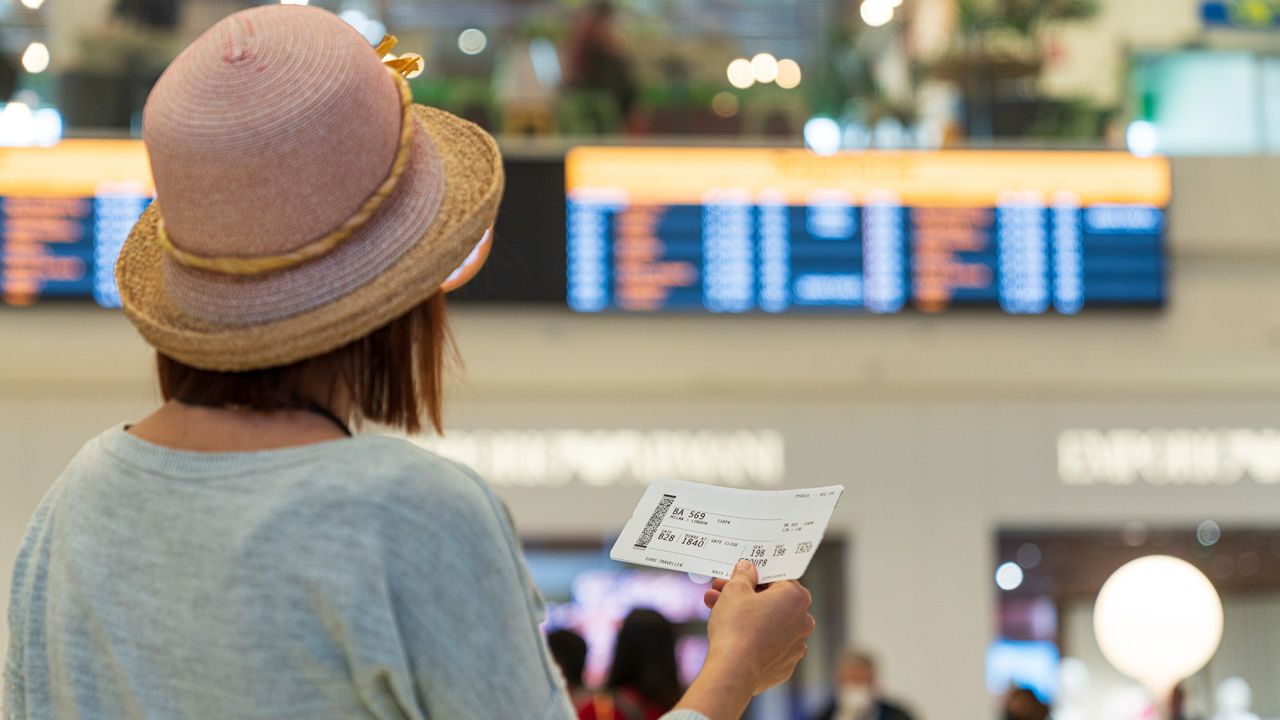How creative would you get to shave $500 off a flight? For those kinds of savings, some flyers engage in the practice known as skiplagging.
Also called hidden-city ticketing or throwaway ticketing, it’s a way some travelers work around an often-counterintuitive airline booking system, shaving money off the price of their trip.
Sometimes, airlines actually charge more for a direct flight than they do for a flight with one or more connecting cities. Typically, a skiplagger books a less expensive flight that has two or more legs rather than buy the more costly direct flight. But it’s a connecting city – not the final city of the flight – that has been the skiplagger’s covert destination all along.
The skiplagger exits the airport at the connecting city. Airlines don’t like the tactic, to put it mildly. And flyers who do it could face penalties from carriers. Yet some passengers are willing to gamble.
One skiplagger’s story
Amanda, a mother who works in marketing in Texas, flies often and is a somewhat recent convert to the practice. She agreed to talk about her skiplagging experiences if CNN Travel published only her first name.
Amanda says she has used hidden city ticketing about 10 times in the past couple of years and estimates she’s saved somewhere from $3,000 to $4,000.
“I think I started around two years ago after, you know, the pandemic. I think in 2021, the companies started to push the prices higher,” Amanda said. By skiplagging, “I pay much less, and I’m doing it constantly.”
Amanda said she normally does it on international flights.
So far, the airlines do not appear to have detected Amanda’s skiplagging ways. Is she worried about getting caught down the line?
“I hope I don’t because it helps me a lot,” she said. “I’m planning to do it again [at] the end of this month” for an international flight.
To be clear, skiplagging isn’t a criminal offense.
“You’re not going to go to jail,” said Scott Keyes, founder of travel site Going. “It is something that is against the airline’s contract of carriage, which means that they see it as a violation of the terms and conditions that you agree to when you purchase your flight.”
And while airlines can’t have violators put in the slammer, Keyes said they can try to slam skiplaggers – especially audacious, repeat offenders – with some tough disincentives, including a loss of frequent flyer miles or even bans from flying on the airline.

History of skiplagging and how it works
Skiplagging isn’t new.
“In fact, travel agents have used it as a tool to save money for customers for many years,” said Phil Dengler, co-founder of online travel advice site The Vacationer, in an email interview.
Dengler said the website Skiplagged.com has increased awareness of the practice in the last decade.
“The term ‘skiplagging’ has slowly replaced ‘hidden-city ticketing’ as the most commonly used term for the practice.”
Kathleen Bangs, a former airline pilot and a spokesperson for FlightAware, said in an email interview that “it can be thought of as the modern-day equivalent of ghosting an airline flight, because the carrier expects you in the seat you’ve purchased, but you never show up.”
The practice doesn’t exist on nonstop flights, Bangs said, laying out a scenario:
“Suppose I want to fly from Minneapolis to Miami, and the fare is $500. Then I discovered that if I book the flight from Minneapolis to Jacksonville, Florida, with a stop or a connection in Miami, the fare is only $350.
“In that case, I could book a one-way flight only, take just carry-on bags, and simply never board the Miami-Jacksonville leg of the itinerary and voila – I’m in Miami - where I wanted to be in the first place, and saved $150 in the process.”
Why airlines hate skiplagging
Airlines despise the practice. Dengler laid out a couple of reasons why.
“Airlines do not like skiplagging because it costs them money. Flights with connections are generally cheaper than nonstop flights because airlines have a lower price ceiling for them,” he said.
“Skipping the final leg ensures the flight will have an empty seat that the airline could have otherwise sold for more money to someone looking to fly nonstop. While the plane will be a bit lighter, airlines have decided any fuel savings do not offset the price of the lost ticket sale.
“Additionally, your airline knows you were on the first flight and are at the airport. The gate agents may call your name out or slightly delay closing the doors. Besides losing money, it creates additional stress for airline staff.”
Keyes said the hub-and-spoke airlines – the carriers that operate service to many destinations in all directions out of their hub airports – tend to be the most affected, and therefore usually the most concerned, by skiplagging.

CNN Travel reached out to seven major airlines with such operations for comment: American, Delta and United in the United States as well as Air Canada, British Airways, Emirates (Dubai) and Lufthansa (Germany).
Only American had any formal comment, in which it said: “The practice of hidden city ticketing is prohibited by American’s Conditions of Carriage and agency agreements. … If a customer knowingly or unknowingly purchases a ticket and doesn’t fly all of the segments in their itinerary, it can lead to operational issues with checked bags and prevent other customers from booking a seat when they may have an urgent need to travel. Intentionally creating an empty seat that could have been used by another customer or team member is an all-around bad outcome.”
Air Canada, Delta and United responded and pointed to their contracts of carriage. Emirates had no comment, and British Airways and Lufthansa did not respond.
The US Department of Transportation, which has been advocating for passenger rights after cancellation meltdowns in recent years, did not address skiplagging specifically when asked for comment, simply stating: “As we’ve shown through our enforcement, public awareness efforts, and regulatory actions, protecting consumers is one of the highest priorities of the Department. We will continue to examine areas of concern and respond as warranted.”
Keyes said the airlines have a delicate balancing act trying to crack down on it.
“They’re worried if they make … too large an example of it, if they highlight it too much, that it actually could backfire and cause more people to become aware of this way that some people are saving money on flights now.”

Skipplagging consequences
Keyes said he has skiplagged a couple of times himself, pointing to The New York Times ethicist, who did a column on the practice.
Dengler strikes a cautionary note about swimming in these waters.
“While skiplagging is one way to save money on flights, I do not recommend doing it in most situations. There is just too much hassle and stress. While you can probably get away with it if you do it very infrequently, there is a real risk your airline takes away your miles, forces you to pay a fare difference, and temporarily bans you.”
Back in Texas, Amanda is ready to take the risks because it’s the only way she can afford to fly out of the country as often as she needs to.
Tickets are now “three, sometimes five times, higher than two or three years ago. So it’s impossible sometimes, you know, to travel anymore.”
